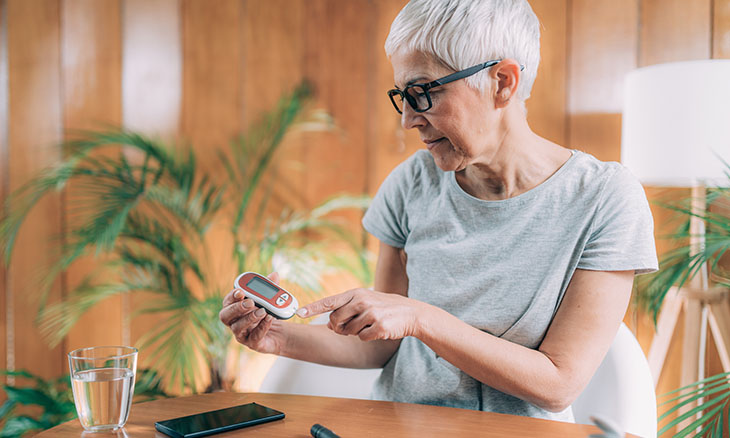
Heat and Diabetes: Six Tips You Need to Know
With another month of summer ahead of us, it’s important to be reminded of how those living with diabetes need to be especially careful when temperatures are high. Hot weather can affect blood sugar levels and pose challenges for people with diabetes in several ways, explained Bayhealth Endocrinologist Wai Wai Lin, MD. She offers some tips for staying safe this time of year when managing diabetes.
Extreme heat is known to take a toll on our bodies. Individuals with diabetes are particularly prone to the health consequences of the heat because it causes fluctuations in blood sugar, making diabetes harder to control. Extreme heat also triggers excessive sweating which can lead to dehydration and thus, higher blood sugar levels. “There’s a cyclical reaction that can make the condition worse. When you’re dehydrated, reduced blood flow to your skin impairs your body's ability to absorb insulin. Very high blood sugar will in turn cause frequent urination which leads to more dehydration and further elevation of blood sugar levels,” said Dr. Lin.
For people with diabetes who develop complications such as neuropathy, the sweat glands may not function properly. These individuals are therefore at higher risk of suffering a heat-related medical emergency such as heat exhaustion or heat stroke, added Dr. Lin.
On hot days, those with diabetes need to drink plenty of water to stay well-hydrated and check their blood sugar more frequently. Taking precautions with supplies and testing kits is equally important. Dr. Lin shares recommended advice, which follows the guidance of the CDC, to help with managing diabetes during summer.
- Never leave your diabetes supplies in a hot car or in direct sunlight. If you’re traveling, pack your insulin in a cooler but don't allow direct contact with the ice pack. Wrap in a hand towel or washcloth and then put in the cooler.
- Physical activities are good for individuals with diabetes, but it’s best to avoid outdoor activities between 10 a.m. and 4 p.m. when temperature are hottest. Stay inside in air conditioning during that part of the day.
- Avoid caffeine and alcohol because both can worsen dehydration and blood sugar control.
- If you feel fatigue, or you have nausea, vomiting, lightheadedness, or increased sweating, check your blood sugar as these are symptoms of hypoglycemia. Always carry glucose tablets, juice or glucose gels to your workout to treat yourself immediately for hypoglycemia.
- Avoid damage to your skin by the sun, which can affect diabetes control. Apply a broad-spectrum sunscreen, wear protective light clothing and a wide-brimmed hat if you go outside.
- Have a plan in case you lose power and a go-bag ready for emergencies.
Dr. Lin sees patients at the Bayhealth Endocrinology, Dover practice, located at 1058 South Governors Avenue, Suite 101. To make an appointment call 302-401-1500 or visit Bayhealth.org/Medical-Group for more information.
